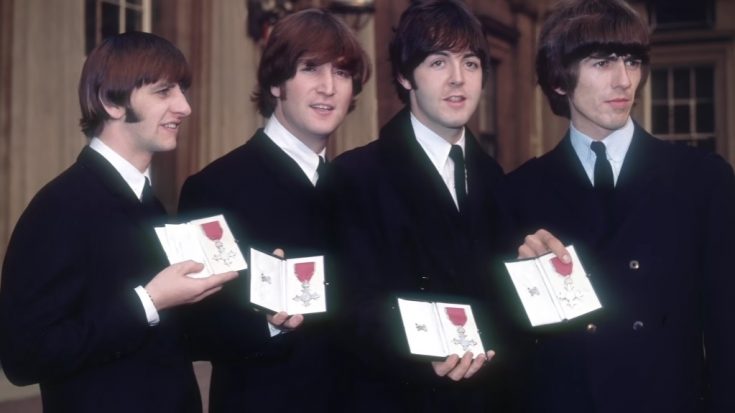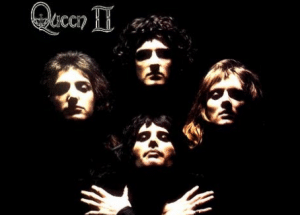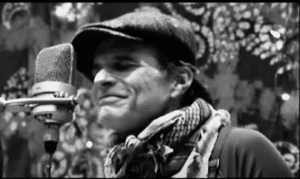10 Classic Songs That Birthed Conspiracy Theories

via FREE MOVIES / YouTube
Music is a powerful force, but its true meaning can be as diverse as its listeners. While artists craft their songs with specific intentions, interpretations can run wild.
This is especially true for classic rock, where cryptic lyrics and mind-bending instrumentals have fueled decades of speculation. Conspiracy theories, often outlandish and entertaining, have sprung up around everything from stray guitar notes to nonsensical phrases.
Join us as we dive into 10 classic songs that have become breeding grounds for some of rock and roll’s most outrageous (and sometimes strangely compelling) theories.
10. AC/DC – “You Shook Me All Night Long” (1980)
AC/DC’s world was rocked by Bon Scott’s death. Many doubted they could recover, let alone find a vocalist who could capture his electrifying spirit. Brian Johnson stepped up, but a cloud of mystery hung over “You Shook Me All Night Long”.
Rumors swirled that Scott penned the lyrics before his passing, though officially credited to the new lineup. The song, a heartfelt tribute to Scott, could very well have been something he started. Even if not his final work, it undeniably embodies the energy and attitude he brought to AC/DC.
9. Green Day – “Wake Me Up When September Ends” (2004)
Green Day’s “Wake Me Up When September Ends” struck a deep chord with a nation still reeling from 9/11. The song’s melancholic tone and themes of loss resonated with those grieving the national tragedy. However, the song’s true origin lies with frontman Billie Joe Armstrong, who wrote it as a personal reflection on his father’s death in September when he was a child.
Interestingly, the song’s ambiguity allows it to function on both a personal and a national level. While the original intent differed, the song’s ability to evoke emotions tied to both a personal loss and a national tragedy creates a rare instance where misinterpretation fosters a deeper connection for listeners.
8. The Ohio Players – “Love Rollercoaster” (1975)
Funk wasn’t immune to the world of conspiracy theories, especially when it came to The Ohio Players’ iconic “Love Rollercoaster”. While rock often took the brunt of accusations about hidden messages, funk wasn’t spared. Listeners fixated on a high-pitched scream halfway through the song, fueling speculation of something sinister happening in the studio.
Theories ranged from a band member being stabbed to someone getting burned by the honey featured on the album cover. Thankfully, reality was far less dramatic. The scream was simply frontman Jimmy Williams getting caught up in the music, a testament to his uninhibited vocal style, even if it took a dark turn for some listeners.
7. Bobby McFerrin – “Don’t Worry Be Happy” (1988)
Bobby McFerrin’s “Don’t Worry Be Happy” is an anthem for positivity and carefree living. Despite its sunny disposition, the song wasn’t spared from a touch of conspiracy. A persistent rumor claimed McFerrin took his own life after the song’s meteoric rise, unable to replicate its success.
Thankfully, this was demonstrably false. McFerrin continues to make music and share his a cappella talents with the world. While the rumor might have elicited a chuckle in younger years, perpetuating it disrespects a talented artist and the seriousness of suicide.
6. Phil Collins – “In the Air Tonight” (1981)
Phil Collins’ solo debut, Face Value, was a raw and personal exploration of his crumbling marriage. Every song bore the weight of his emotional turmoil, and “In the Air Tonight” was no exception. The song’s lyrics evoke imagery of drowning, fueling a persistent conspiracy theory.
Fans believed it was a scathing indictment of a witness who refused to help someone drowning, with Collins confronting this unnamed person at concerts. While Collins himself has dismissed this theory, calling it “good, clean revenge,” it undeniably possesses a dramatic flair worthy of a daytime soap opera.
5. Tom Petty and the Heartbreakers – “American Girl” (1976)
Tom Petty was a champion of the American spirit, celebrating everything from California sunshine to heartland grit. “American Girl” embodied this love, introducing a vibrant character full of free spirit and youthful independence. However, some listeners found a darkness beneath the song’s cheerful exterior.
Fans latched onto the lyric about the girl standing alone on a balcony, weaving a tragic narrative of suicide by jumping from a building overlooking Route 441. Petty vehemently denied this interpretation, insisting the song was about a desirable, captivating young woman – the “Free Fallin'” character, perhaps? The upbeat tempo and Petty’s signature rock energy certainly contradict any notion of a deliberate suicide ballad.
4. Fleetwood Mac – “Rhiannon” (1975)
Fleetwood Mac’s music has always held a touch of the mystical. Stevie Nicks, renowned for her connection to the spiritual, upped the ante with her arrival, adding a captivating blend of blues and otherworldly themes to the band’s sound. “Rhiannon,” inspired by a Welsh legend of a vengeful woman, fueled a particularly intriguing conspiracy theory.
Fans interpreted the song’s live performances as a form of possession, with Nicks’ increasingly energetic stage presence seen as evidence of the mythical Rhiannon taking control. While whispers of ghostly forces in rock and roll persist, the notion of Nicks using live performances for mass hypnosis is perhaps a step too far. After all, a truly captivating rock frontwoman needs no supernatural assistance to command the stage.
3. Eagles – “Hotel California” (1976)
Artists shouldn’t be forced to explain their work. A song’s meaning is up to interpretation, no matter how much fans dissect the lyrics. Don Henley, frontman of the Eagles, famously described “Hotel California” as a journey from innocence to experience, leaving plenty of room for speculation. Religious groups, however, weren’t interested in such an open-ended explanation.
They went all in, analyzing everything from the album cover to playing the song backwards, convinced it was a satanic message. While the Eagles did explore darker themes during the album’s creation, the song likely delves into the pitfalls of fame, with California itself becoming a metaphor for a descent into a warped reality. Many fantasize about celebrity life, but for those who’ve lived it, Henley’s lyrics likely resonate deeply, painting a picture of the dark side of success.
2. Led Zeppelin – “Stairway to Heaven” (1971)
Led Zeppelin’s music has long been a target for conspiracy theorists, fueled in part by Jimmy Page’s interest in the occult. Their iconic ballad “Stairway to Heaven” became a prime example. Fans, convinced of hidden messages, meticulously analyzed the lyrics, particularly when played backward.
Lines like “here’s to my sweet Satan” supposedly emerged, sparking accusations of Satanic worship. However, these “messages” were nothing more than the product of overlapping words played in reverse. Ironically, the very existence of a “Stairway to Heaven” played backward, leading not to hell but back to the song itself, could be seen as a testament to its positive message of ascension, even for those who interpreted it otherwise.
1. The Beatles – “Helter Skelter” (1968)
The Beatles are no strangers to conspiracy theories. From elaborate tales of Paul McCartney’s death to the absurd notion of a song advocating for leaving a dog in a hot car, the Fab Four have kept fans guessing for decades. While some theories are harmless fun, “Helter Skelter” took a horrifying turn.
In 1968, Charles Manson, a musician with a dark side, became fixated on The White Album. He interpreted “Helter Skelter” as a message heralding a race war, “Helter Skelter” being his twisted interpretation of a line from the song. Manson, fueled by this delusion, assembled his “family” and embarked on a killing spree targeting celebrities, even scrawling the song title at one crime scene.





















